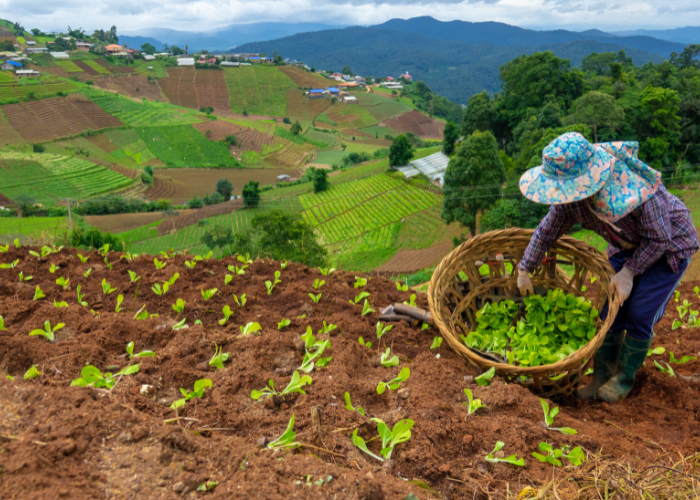Italian agri-food: foreign dependence and supply chain vulnerabilityBY Carola Macagno
- 27 December 2024
- Posted by: Competere
- Categories: highlights, News, SUSTAINABLE NUTRITION, Sustainable Oils & Fats

The Italian agri-food sector is a success story of balancing tradition and innovation, excelling in international markets by transforming raw materials into iconic Made in Italy products. However, this excellence is possible only because Italy is heavily dependent on imports of certain agricultural goods, essential for supplying the country’s industrial supply chains.
According to a recent ISMEA report, Italy imports not only agro-food products that cannot be grown domestically, like coffee or palm oil—where self-sufficiency is at zero—but also key goods for its supply chains, including extra virgin olive oil, maize, live cattle, ham and pork shoulders, soft and durum wheat, soybeans, and soy oil extraction cakes.
Coffee imports come from five key countries: Brazil, Vietnam, Uganda, India, and Indonesia. For palm oil, around 90% of the value imported into Italy comes from Indonesia, the world’s top producer, along with Malaysia and Guatemala, with 97% certified sustainable.
The high concentration of supply sources (with a concentration index of 0.37 for palm oil) makes the supply chain particularly vulnerable to geopolitical, climatic, and health crises, which can destabilize supply chains and trigger price increases.
This dependency is not just a national issue; it reflects a broader vulnerability affecting global food security. Rising global demand combined with a productivity crisis in agriculture puts additional pressure on an already fragile system. A glaring example is cocoa, whose market has undergone a severe crisis: by April 2024, prices surged by 135% compared to January and by 300% compared to early 2023. This dramatic increase is linked to a collapse in production in leading producing countries like Côte d’Ivoire and Ghana, where plant diseases and adverse climatic conditions, including droughts and irregular rainfall, have crippled supply chains.
A SUPPLY CHAIN UNDER PRESSURE: THE GLOBAL CRISIS OF VEGETABLE OILS
Among vegetable oils, palm oil stands out for its production efficiency. Occupying just 6% of the agricultural land dedicated to oils, it produces 32% of the global supply, making it irreplaceable for global food security. Despite these figures, the sector is under pressure. Outdated plantations, labor shortages, and rising costs are slowing global production. These structural difficulties are further compounded by increasingly stringent environmental regulations, which, while necessary, often overlook the operational complexities of the sector.
Forecasts for 2024/2025 indicate a significant reduction in palm oil production, dropping to 80 million tons from 2023 levels. In Indonesia, the world’s largest producer, production has decreased by 2.5 million tons compared to the previous year, and exports have fallen from 31 million tons in 2023 to 17.5 million in the first nine months of 2024. This decline is attributed not only to reduced production but also to increased domestic consumption, mainly for biodiesel.
This crisis also affects other vegetable oils, such as sunflower and canola oil, increasing pressure on alternative crops like soybeans, particularly in South America. Stagnation in productivity is thus one of the most urgent challenges to ensure global food security.
FOOD SECURITY AND SUSTAINABILITY: EUROPE’S ROLE
In this context, Europe must balance environmental sustainability with the need for a stable and adequate supply of raw materials. The European Deforestation Regulation (EUDR) is a step forward in forest protection and supply chain transparency. However, its implementation requires a balance between environmental protection and support for agricultural productivity.
Although the EUDR has been officially postponed for a year to allow all stakeholders to adjust, the combination of growing global demand and the productivity crisis risks compromising food security both in Europe and globally.
To address this challenge, policies promoting investments in advanced technologies and sustainable replanting are needed, increasing yield per hectare without compromising biodiversity. Additionally, these measures must be accompanied by concrete support for small producers in exporting countries, who form the backbone of many global agricultural supply chains. To ensure the effectiveness and feasibility of environmental regulations, it is crucial to provide financial resources and technical assistance programs, ensuring that all involved parties can comply with the required standards. Only fair and strategic international cooperation will make supply chains resilient and sustainable, able to meet the needs of a growing global population.
The challenge is both technical and political. Europe must position itself as a global leader by developing innovative solutions and fostering constructive dialogue with producing countries. Only through a balanced approach, combining sustainability with productivity, can food supply be safeguarded while respecting the environment and human rights throughout the supply chain.
Read EUDR: welcoming the EC’s guidelines and the proposed 1-year phase-in>>>
